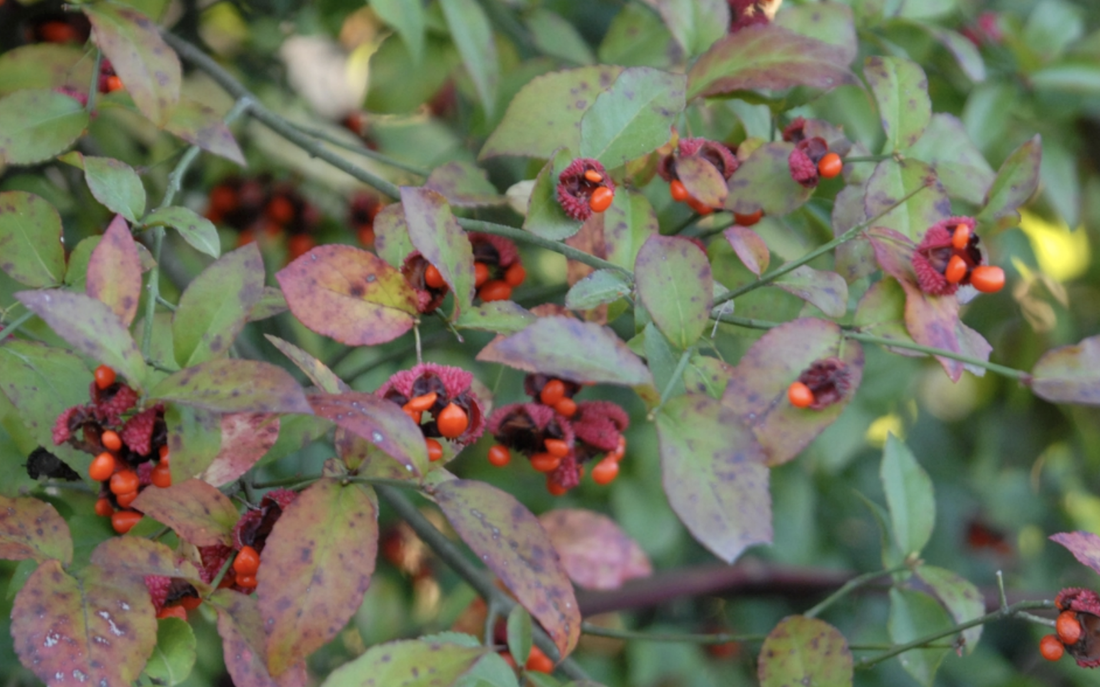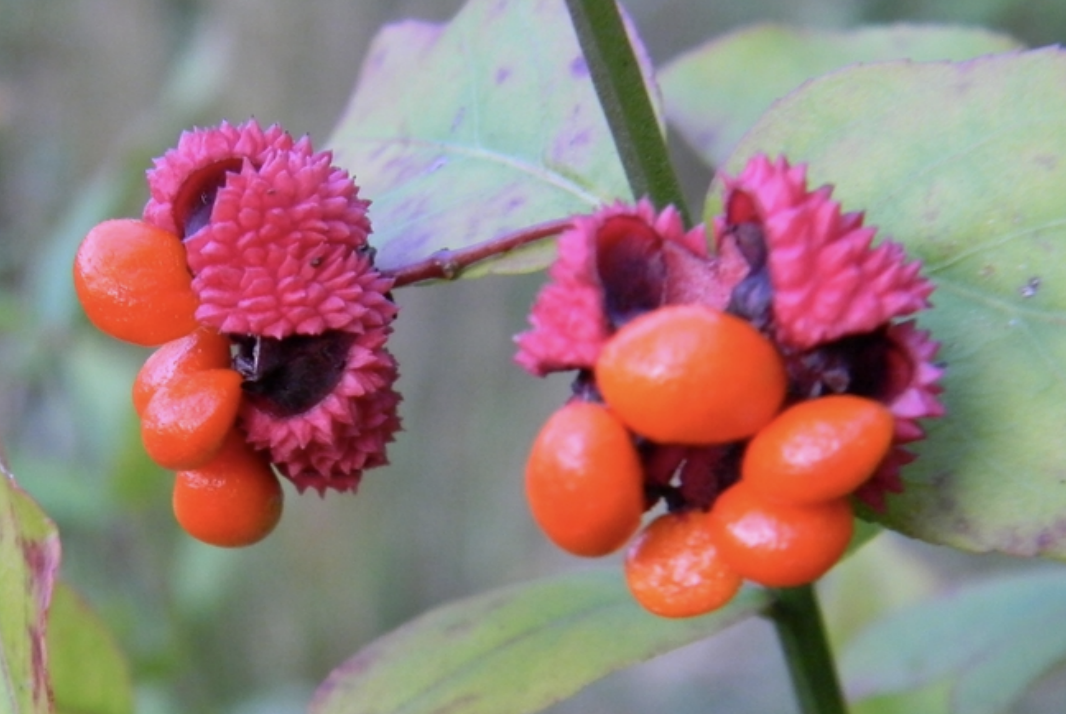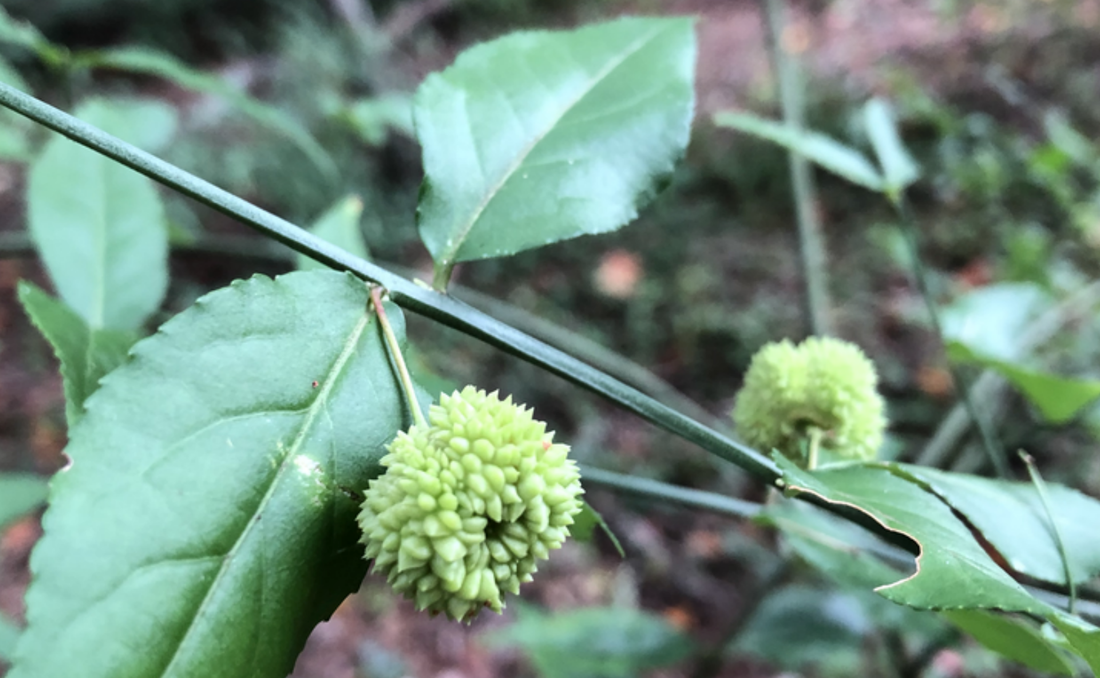|
By Matt Stevens, County Extension Director and Horticulture Agent, Pitt County The many benefits of using native plants in landscapes instead of non-natives are often touted by native plant enthusiasts. Many will tell you that natives are better adapted to our local climate and to our local soils, that they have fewer pest problems, and that they are less invasive. I don’t mean to sound skeptical, as I believe these claims are indeed true, provided the native plants are planted in the right locations (more on that in a minute), but one of the often overlooked reasons to plant natives is that many of them are simply really cool plants. I’ve always been drawn to plants that are just a little bit odd, and our native Euonymus americanus, aka Strawberry bush or Heart’s-a-bursting, is certainly one that fits that category.
of these, but will bear little immediate resemblance to any of them in most gardeners’ eyes. Though most of the other Euonymus species are rather densely foliated, Strawberry bush has an open, almost airy form, with relatively delicate leaves. Both leaves and stems are the same shade of kelly green, with only the oldest stems having a more traditional brown twig color. The leaves are deciduous and have a reddish fall color. Strawberry bush has tiny white flowers during May, though they are not overwhelmingly eye-catching.
name, Hearts-a-bursting, is a reference to the appearance of the fruit after it’s split open. The fruit aren’t as abundant on each bush as the berries on a holly or beautyberry bush, but they are the type of thing that you see and immediately say, “What the heck is that?”
placement. Strawberry bush grows best in partial shade and moist soils. Some resources will tell you that they can also tolerate drought and full sun, but I have never seen one thriving in those conditions and thus it seems best to plant them in our landscapes in areas similar to where they grow naturally–moist, wooded areas with high organic matter soils.
Matthew Stevens is the County Extension Director and Horticulture Agent for North Carolina Cooperative Extension’s Pitt County Center. If you have questions about this article or gardening in general, please contact the Pitt County Extension Master Gardener Infoline at 252-902-1705.
0 Comments
Leave a Reply. |
Matt Stevens
Pitt County Extension Director & Horticulture Agent Archives
July 2024
Categories |



 RSS Feed
RSS Feed